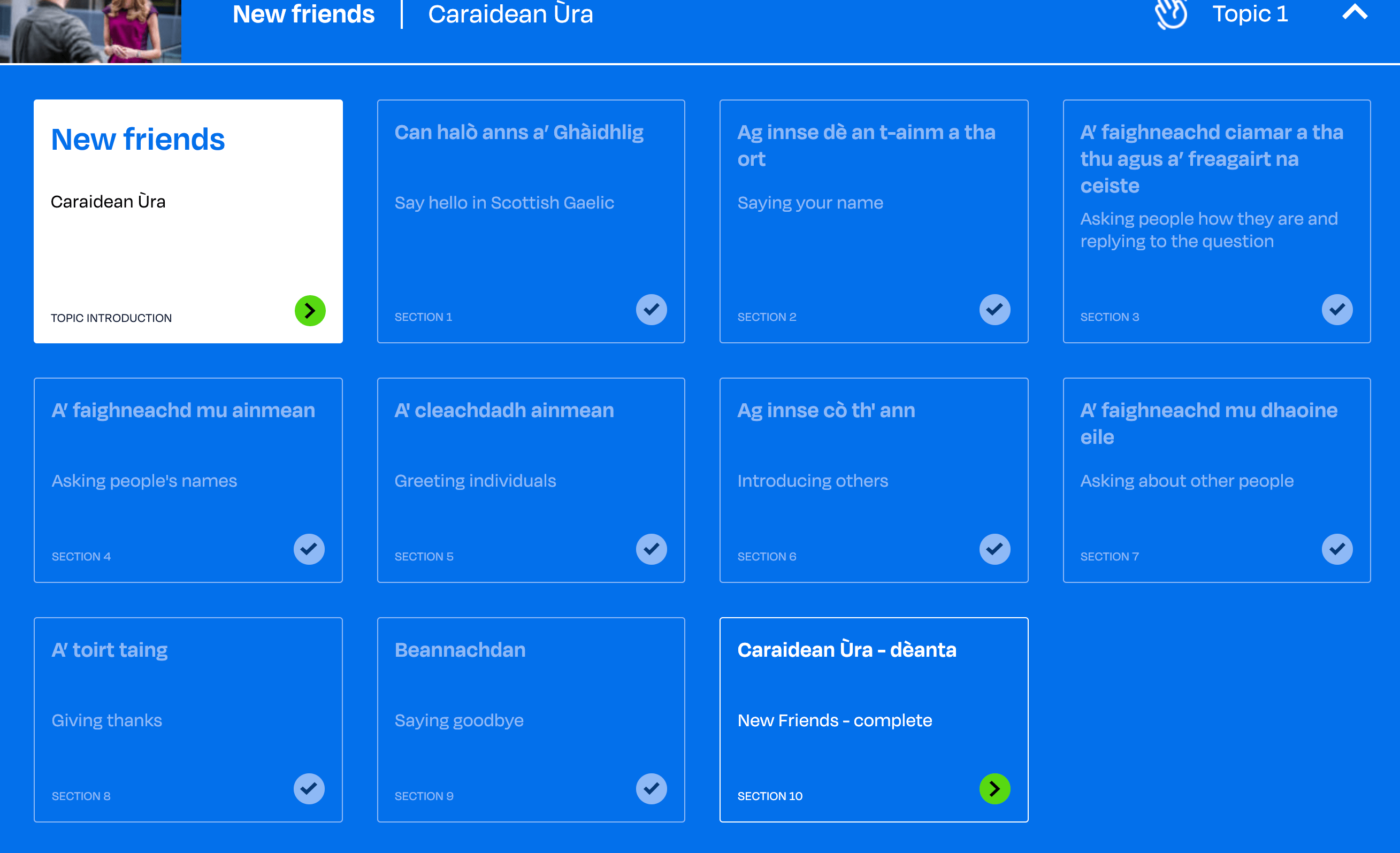dham ionnsaigh
towards me
To talk about crime, we need to look at new compound prepositions.
We often use the preposition a dh’ionnsaigh (towards) with this topic and the prepositions a dh’aindeoin (in spite of) and a rèir (according to) can be seen often in the news.
Chunnaic iad am mèirleach a’ dol a dh’ionnsaigh na sgoile.
They saw the thief going towards the school.
Fhuaradh ciontach e a dh’aindeoin na fianais(e).
He was found guilty despite the evidence.
A rèir na fianais(e) rinn esan e.
According to the evidence he did it.
dham ionnsaigh
As we learned in B1, compound prepositions combine with the possessive adjectives: mo, do, a, a (h–), ar (n–), ur (n–), an/am.
| a dh’ionnsaigh | + | mo | → | dham ionnsaigh | towards me |
| a dh’ionnsaigh | + | do | → | dhad ionnsaigh | towards you |
| a dh’ionnsaigh | + | a | → | dha ionnsaigh | towards him |
| a dh’ionnsaigh | + | a h– | → | dha h–ionnsaigh | towards her |
| a dh’ionnsaigh | + | ar n– | → | dhar n–ionnsaigh | towards us |
| a dh’ionnsaigh | + | ur n– | → | dhur n–ionnsaigh | towards you (plural) |
| a dh’ionnsaigh | + | an | → | dhan ionnsaigh | towards them |
The a in a dh’ionnsaigh (towards) is really the preposition do/dha.
Therefore, to say ‘towards me’, we need to combine the simple preposition do/dha with the possessive adjectives.
We also need to remember to use an tuiseal ginideach (the possessive or genitive case) with definite nouns.
Thàinig i dham ionnsaigh.
She came towards me.
Thig e a dh’ionnsaigh na sgoile.
He’ll come towards the school.
Tha iad a’ tighinn a dh’ionnsaigh an taighe.
They are coming towards the house.
a rèir
according to
The compound preposition a rèir (according to) also uses the preposition do/dha and combines with the possessive adjectives in the same way:
Chan eil sin fìor, dha rèir–san.
That’s not true, according to him.
a dh’aindeoin
in spite of
The compound preposition a dh’aindeoin (in spite of) is also followed by the genitive case:
Nì sinn e a dheòin no a dh’aindeoin.
We will do it willingly or not.
Creididh daoine sin a dh’aindeoin na fianais.
People believe that in spite of the evidence.




